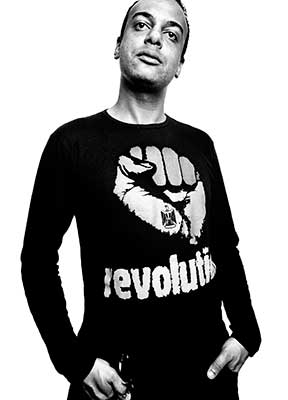 Hossam Bahgat, who won the 2014 Katharine and George Alexander Law Prize from Santa Clara University School of Law for his work as founder of the Egyptian Initiative for Personal Rights, was recently quoted in the New York Times about the verdict of Egyptian former President Hosni Mubarak. Mubarak, who was facing murder charges for the killing of protesters which were demanding an end to his 30-year rule, had all charges dropped against him.
Hossam Bahgat, who won the 2014 Katharine and George Alexander Law Prize from Santa Clara University School of Law for his work as founder of the Egyptian Initiative for Personal Rights, was recently quoted in the New York Times about the verdict of Egyptian former President Hosni Mubarak. Mubarak, who was facing murder charges for the killing of protesters which were demanding an end to his 30-year rule, had all charges dropped against him.
Bahgat was quoted in the article and offered a brief analysis of the ruling:
More than five months after the inauguration of a military-backed strongman, President Abdel Fattah el-Sisi, the authorities appeared to calculate that the Egyptian public was so weary of unrest that it had lost a desire for retribution against Mr. Mubarak, or at least that they now had a firm enough grip to suppress any backlash.
“Today’s verdict indicates a very deliberate decision by the regime to continue on the path of rewriting the history that led to Mubarak’s ouster and closing the file on the Jan. 25 revolution,” said Hossam Bahgat, a journalist and human rights advocate who had cheered on that revolt and is now studying in New York.
The council of generals who took power from Mr. Mubarak had feared a public backlash too much to ever allow the former president’s release, but Mr. Sisi’s government felt no such compunction, Mr. Bahgat said. “They are not afraid. They are perfectly capable of letting him walk free, and they feel no pressure to hold him accountable.”
About Hossam Bahgat
Hossam Bahgat is the founder and former executive director of the Egyptian Initiative for Personal Rights (EIPR), a Cairo-based independent organization created in 2002 to defend human rights in Egypt.
Since 2002, the EIPR has used the power of research, advocacy, and litigation to promote and defend the rights to privacy, religious freedom, health, and bodily integrity.
“Hossam Bahgat is an outstanding model of bravely using one’s gifts and talents to pursue a larger good of religious and political freedom,” said Santa Clara University School of Law Dean Lisa Kloppenberg.
After the 2011 revolution, EIPR expanded its scope of work to include transitional justice, the protection of civil liberties and political rights, promotion of economic and social justice and reform of the criminal justice system
Anthony Romero, the executive director of the American Civil Liberties Union, calls Bahgat a Nobel Peace Prize-caliber advocate who is “passionate, strategic, visionary, and courageous.”
With training in political science and international human rights law, Bahgat is also board chair of the International Network for Economic, Social and Cultural Rights (ESCR-Net), and a member of the board of directors of the Fund for Global Human Rights. In 2011, Bahgat received Human Rights Watch’s Allison Des Forges Award for Extraordinary Activism.
Human Rights Watch noted that after the Tahrir uprising began, the high-profile Bahgat and EIPR helped document violence against protestors and prisoners, and led a campaign against military trials of civilian protesters. After the ouster of President Mubarak, the group said, “Bahgat stepped up his efforts, seeking new laws and lasting institutional change to build a more rights-respecting Egypt.”